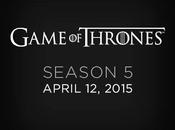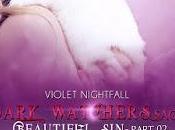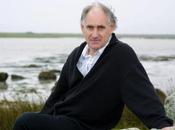New Trends in Japanese Documentary - An exclusive interview with Fujiwara Toshifumi by Matteo Boscarol
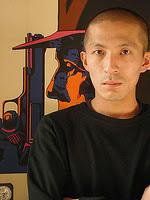 I've watched a couple of documentaries dealingwith the disaster that hit Japan on March 11th, but in my opinion your workstands apart from them, I think you adopted a broader perspective, among otherthings I felt No Man's Zone to be a visual essay on the impact the images ofdestruction have in our society.Yes, you're right but obviouslyit was something that was inside me from before the disaster and grew up inyears.
I've watched a couple of documentaries dealingwith the disaster that hit Japan on March 11th, but in my opinion your workstands apart from them, I think you adopted a broader perspective, among otherthings I felt No Man's Zone to be a visual essay on the impact the images ofdestruction have in our society.Yes, you're right but obviouslyit was something that was inside me from before the disaster and grew up inyears.It was alsolike watching two documentaries, one with the row images and interviews fromthe area hit by the tragedy, the other one more reflective, with the narrationand the editing giving a philosophical frame to it.We've tried to create twoseparate layers very deliberately, one of the reason is that is aFrench-Japanese co-production, cameraman and director are Japanese, the editoris French...so why not having two layers to incorporate a certain distancewithin the contest. Originally we thought of a French voice and the narrationwas different from the final one, it was more like a fictional story, the ideawas that of a French woman and a Japanese director correponding through theinternet. We collaborated with some French writers but they did't get the rightideas because it was also suppose to be quite critical of the French cultureitself but it turned out into something rather awfully colonialist. So it did'twork and I rewrote the whole narration.
In this way it should be able to affect also aforeign audience, the Japanese media did't do a good job but at the same timethe international media excelled in misinformation, especially the Italian one,the worse of all.Even here in Japan it's turningthis way, now the Japanese anti-nuclear movements are paradoxically against thepeople of Fukushima.
There's a scene that particulary impressed me andeven reminded me of some parts of Ogawa Shinsuke's Heta Buraku, it's the onewhen the camera is following an old lady wandering and speaking in her garden.Thank you for the compliment, itis so probably because my cameraman, Takanobu Kato was working with Ogawa and he was one of thelast person to leave the production. It was important that he was with mebecause being trained under Ogawa when his production was in Yamagata, theyliterally lived there also raising rice and so on, so he knew how to shoot ricefields, and other details of the lives in the countryside.
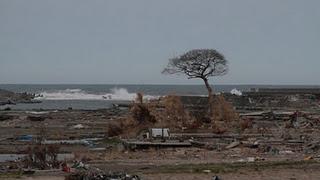 In the same scene through the memory of the oldlady there are also references to a wider sense of time, historical and naturalcycles, reaching as far as the period after the Second World War.I would say even more back intime, in fact she recalls her father having been a silkworms teacher, it wasbefore the war when Japan biggest export was silk itself.The images of movies of this kindfocus usually on destruction but we tried to suggest what was there before thedestruction. What was destroyed and also what the people of these areas havelost is much more important.
In the same scene through the memory of the oldlady there are also references to a wider sense of time, historical and naturalcycles, reaching as far as the period after the Second World War.I would say even more back intime, in fact she recalls her father having been a silkworms teacher, it wasbefore the war when Japan biggest export was silk itself.The images of movies of this kindfocus usually on destruction but we tried to suggest what was there before thedestruction. What was destroyed and also what the people of these areas havelost is much more important.What triggered you to go to Fukushima after amonth of the Earthquake and start to shoot?I was disgusted by the way theimages were shown on TV, the live footage doesn't show us how the people usedto live, doesn't give a chance to them to communicate, their life upthere is sodifferent from the one of the journalists in Tokyo and moreover the images arejust row material without any good editing. So my intention was to make a filmthat would look distinctly different from what we watch on television which isusually shot very hastily with a hand-held camera, one of my first commitmentwas to shoot as much beautifully as we could, that's why when possible we useda trypod. Already I'd hated lots of contemporary documentaries because theirshots aren't beautiful, they shoot them too easily, even if we didi it in 10days we tried to do it as better as we could. It was also important to have abeautiful editing.
And the voice of Khanjian Arsinée for thenarration is very beautiful indeed.Her voice is incredible, she' sArmenian but she grew up in Lebanon so her native tongues are Arabic and Frenchbut then she moved to Canada when she was 17, in the French speaking Quebec. Iliked her voice because she is not totally native in English [the narration isin English] and so we cannot clearly identify the nationality of her voice.
You went to Fukushima with your cameraman and oneassistant, is that right?Yes, it's better to have a smallcrew also knowing that the TV people are usually annoying them...
How did the people there react to you and yourcrew?Again, we were only three and wewere not wearing any protection gears or masks and so they were extremelypolite to us as they usually are to everybody else, you know, the people ofTohoku have a tradition for hospitality. Also we were not asking abrupt andstupid questions like "what do you think of that and that..".
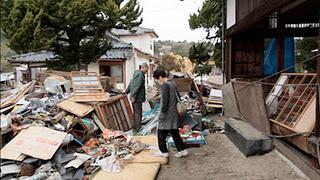 The problem of how to approach and relate to thepeople affected by disasters is a crucial one for the art of documentary, atthe last Yamagata Documentary International Film Festival there was a debate onthat.I was there myself and I thinkthe largest problem of these documentaries is that they're more about thefilmmakers going there and not necessarily about the places and the poepleliving there.The general problem is that manyfilmmakers went to Tohoku but they made films about their own confusions andpanicked state of minds, while they forgot to make documentaries about thedamages of the quake and the people who were directly touched by the tragedies.They are too-self centered and unconsciously self obsessed, while an evenlarger problem that I observe is that the audience in Tokyo find comfort inseeing these movies, being reassured that the filmmakers are also confused. Ifind this tendency very problematic for being too masturbatory. They areforgetting the original function of cinema, which must be something open tocreate links and communications, as under such circumstances we should bemediums to make a bridge between those who experienced the tragedies and us whodidn't. That is one of the reason why we tried to make "No Man'sZone" an open film-text, instead of sharing the personal experiences (ifnot self-excuses) of filmmakers, we wanted it to ask direct questions to theaudience. Of course my cameraman worked with Ogawa and I made a film aboutTsuchimoto, so I was influenced by others and different generations ofdocumentary's filmmakers, I've kind of skipped the generation of the so calledprivate-documentaries.
The problem of how to approach and relate to thepeople affected by disasters is a crucial one for the art of documentary, atthe last Yamagata Documentary International Film Festival there was a debate onthat.I was there myself and I thinkthe largest problem of these documentaries is that they're more about thefilmmakers going there and not necessarily about the places and the poepleliving there.The general problem is that manyfilmmakers went to Tohoku but they made films about their own confusions andpanicked state of minds, while they forgot to make documentaries about thedamages of the quake and the people who were directly touched by the tragedies.They are too-self centered and unconsciously self obsessed, while an evenlarger problem that I observe is that the audience in Tokyo find comfort inseeing these movies, being reassured that the filmmakers are also confused. Ifind this tendency very problematic for being too masturbatory. They areforgetting the original function of cinema, which must be something open tocreate links and communications, as under such circumstances we should bemediums to make a bridge between those who experienced the tragedies and us whodidn't. That is one of the reason why we tried to make "No Man'sZone" an open film-text, instead of sharing the personal experiences (ifnot self-excuses) of filmmakers, we wanted it to ask direct questions to theaudience. Of course my cameraman worked with Ogawa and I made a film aboutTsuchimoto, so I was influenced by others and different generations ofdocumentary's filmmakers, I've kind of skipped the generation of the so calledprivate-documentaries.Like Kawase Naomi?I like Kawase and what she does,she is about of my generation but we do different things and that's ok with me.I could say that I do documentaries like in the 60s, except that there is nomore politics involved, the Japanese leftist politics has disintegrated in avery rapid way after te 70s.
Do you think March 11th will change something infilmmaking?In my opinion it should. But Ihaven't seen the change yet, but after all only 9 months have passed. One thingfor sure is that we have to try to do something different, different from whatwe were doing before. Actually before the quake I was working on a movie butnow I'm not sure if it's worthwhile to complete it, it's about Japan beforeMarch 11th.
It's a different period, it's like being after awar in a way.We should consider March 11thalmost as important as August 15th 1945.
Few months ago I've talked to Sono Sion and hesaid that in the tragedy it was paradoxically "good" that somethinglike that happend, because it suddenly uncovered many problems affecting theJapanese society. For instance the relationship between urban centers andcountryside, that is Tokyo-Tohoku...I totally agree with him, we (inTokyo) are just parasite, it is repetedly stated in No Man's Zone, the nuclearplants have been there for almost 40 years and what is awful is that even nowafter 9 months in Tokyo people don't want to admit that we're responsible.
And even now [the interview was conducted duringthe Christmas period] it's like nothing has happened at all.At the Tokyo FilmEx this year a ladyin the audience from Fukushima was quite surprised after watching the moviewhen she walked outside and found the streets in full illumination forChristmas.
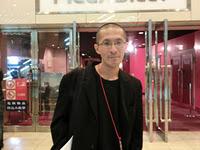 Can you tell us something about the music used inthe film?It's composed and performed by afree jazz American musician who's been living in France for many years, hisname is Barre Phillips and we've worked together before [Independence, 2002],again, we decided for a non-Japanese composer, one of the best that you canget, and also one that was not so expensive and not too commercial.The funny thing is that herecorded the music in a chapel of an ancient monastery in the south of France,in No Man's Zone there are a lot of Japanese traditional views with images ofBuddhas, small gods and so I thought it would be interesting to have the musicrecorded in a catholic chapel. In this way the music and the narration canmaybe suggest something universal, that's why I wanted someone else and notmyself to do the narration in English, it would have otherwise became just adocumentary about my experience. Because this nuclear accident is askingtremendous and huge questions to all of us, to our civilization and how we haverelated ourselves to nature and to the universe, how we perceive our life. We actuallyhave to think about the philosophical and even the religious aspects of it all,I would say, and it's stated at the end of the film, that Japan, embracingwestern civilization, has accepted its idea of a nature existing for us, toserve humans. It's actually a very Christian concept, is not even Jewish orIslamic, it's a particular belief of Christianity to say that God createdeverything for us.
Can you tell us something about the music used inthe film?It's composed and performed by afree jazz American musician who's been living in France for many years, hisname is Barre Phillips and we've worked together before [Independence, 2002],again, we decided for a non-Japanese composer, one of the best that you canget, and also one that was not so expensive and not too commercial.The funny thing is that herecorded the music in a chapel of an ancient monastery in the south of France,in No Man's Zone there are a lot of Japanese traditional views with images ofBuddhas, small gods and so I thought it would be interesting to have the musicrecorded in a catholic chapel. In this way the music and the narration canmaybe suggest something universal, that's why I wanted someone else and notmyself to do the narration in English, it would have otherwise became just adocumentary about my experience. Because this nuclear accident is askingtremendous and huge questions to all of us, to our civilization and how we haverelated ourselves to nature and to the universe, how we perceive our life. We actuallyhave to think about the philosophical and even the religious aspects of it all,I would say, and it's stated at the end of the film, that Japan, embracingwestern civilization, has accepted its idea of a nature existing for us, toserve humans. It's actually a very Christian concept, is not even Jewish orIslamic, it's a particular belief of Christianity to say that God createdeverything for us.Tokyo, December 2011.
